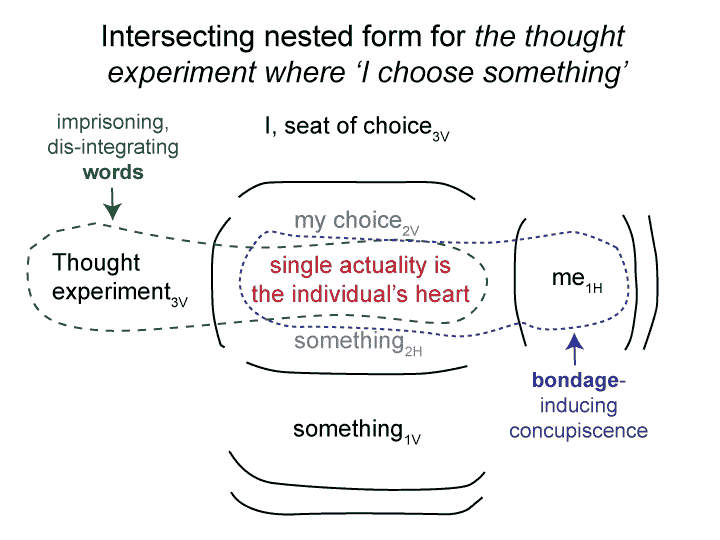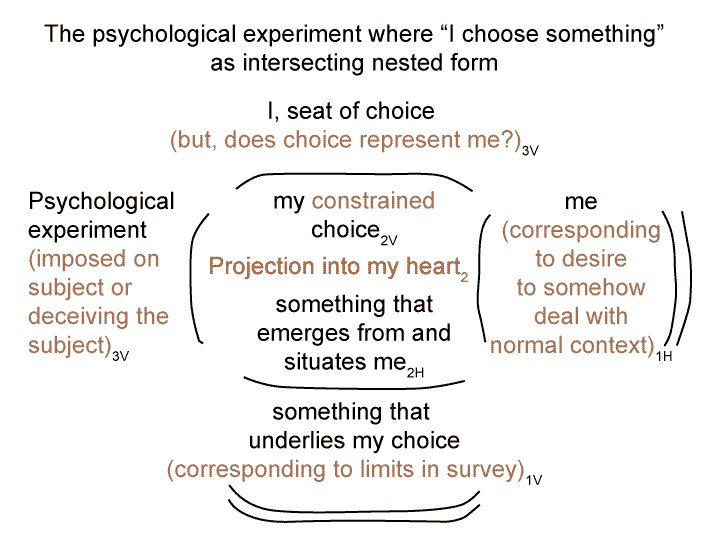Man and Sin by Piet Schoonenberg (1964) 2.3 YT
[Before I go another round in chewing the cud on this, I want to briefly re-iterate the interscope and intersection proposed in section 2.1.
Consider two nested forms:
I recognize myself as an image of God.
My human nature is to participate in divine nature.
The intersection produces two contrasting single actualities: grace and self-destruction.
Here they are.]


